Text
Beijing
When people asked me why I had decided to go to Beijing, I struggled to come up with an answer that satisfied them. Susan Sontag said, “Today is a time, when the project of interpretation is largely reactive, stifling. It is the revenge of the intellect upon the world. To interpret is to impoverish.” Perhaps I need to start conveying Sontag’s statement to all who ask me ‘why?’ Because I make decisions without thinking – as they’re already felt out in some deep depth of my being. The decision to go to Beijing was driven by the intrinsic desire to take a step into the unknown and, in doing so, be given no other option than to enter into a state of near constant mindfulness – as travelling solo without sharing the language of those around us demands. Without words, the intellect loses its grip upon our lives. Without the intellect, we are free to perceive without preconceptions – and that, to me, is the essence of mindfulness. As creatives, I think we all know in some way the potency of noticing with new eyes, and that is, perhaps what imbues so many of us with the desire to travel. So we set off for new horizons, leaving behind the narratives entwined with the places we depart from. Without those narratives we stop thinking and instead start seeing, and most importantly feeling, the unspoken language that we, as human beings, live by. It’s precisely this unspoken language that enables us to comprehend the universal struggle for familial and social acceptance that is prevalent, to varying degrees, throughout the globe. Therein lies the beauty of travelling, for it forces us to give up old ways of thinking, doing and, fundamentally, being. If we fail to do this then we miss out on the true depth of experience offered to us. Beginning anew takes courage but the reward far outweighs the risk. Beijing presented me with the opportunity to also begin anew upon my return to Australia. For all the distress that the sudden onslaught of understood audio brought, came equal parts joy for the newfound eyes with which I had to view and appreciate Australians, our way of life, and our land. If you really must know why I went to Beijing, I went because the opportunity arose to go, to learn, and to grow – to immerse myself in something new and so develop anew myself. I do most other things for the same reason – and how profoundly simple and satisfying that is.
0 notes
Text
Into the Amazon
From the start of my journey it had always been about getting away from normal, from routine. In fact from the start of my early adulthood I had been constantly fantasizing to break free into the unknown of what the world consisted of. It was only until I was halfway across the world, fighting for my life, that I realized how fortunate “normal” was.
After finishing high school I felt obligated to get away from home. I was disinterested and dulled by my surroundings. Even the people closest to me, my favorite places, became smothering and uncomfortable.
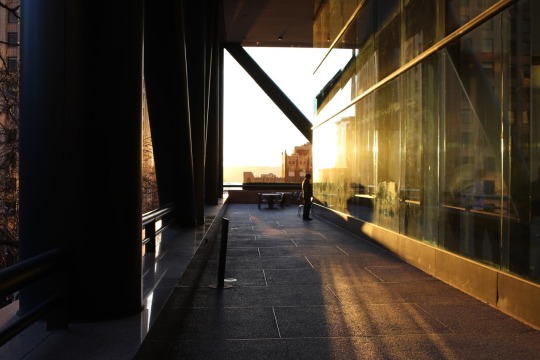
I was accepted to University in Colorado and soon relocated there. I joined a community of people who were passionate about the same things as myself; hiking, climbing, skiing, anything that got us outdoors. I was fascinated by the idea of exploring outside of America, getting further out of my comfort zone. I began religiously following adventurers online; photographers, journalists, explorers. These people inspired me, yet even then I felt myself becoming depressed, feeling stagnant in my environment. Surrounded by students from wealthy families who were partying away their educations, I became fidgety, restless. I would day dream about going out to the highway with a backpack and hitchhiking as far away as I possibly could. Yearning to experience discomfort, poverty, solitude, and anything else which came with it.
Six months later and it was almost time to depart on a one way flight to Chile, the furthest south I’d ever ventured. After leaving the manicured lawns and red brick buildings of the University of Colorado, I would embark on a solo journey across all of South America without any itinerary.
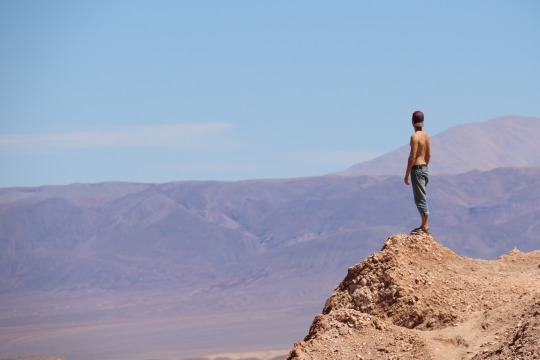
While headed towards Argentina on an overcrowded bus, I caught myself in a moment of reflection. Two months I’d been on the road; I had surfed my way down the Chilean coast, climbed volcanos, rafted rivers, met a wide variety of new people, and still I felt frustrated. Despite the oppressive heat, I was well within my comfort zone. The areas I was visiting, so massively westernised, allowing me to feel comfortable while being so far removed from home. I didn’t want comfort. I wanted change. I was longing for adrenaline, thrill, culture, wild experiences, danger, something to get me going. The reality was I couldn’t change unless I shifted my attitude towards the trip. The tormenting thoughts of a failed adventure consumed me.
By the time I arrived in Bariloche, the northernmost city of Patagonia, I was frustrated with myself and those around me in the busy town cluttered with other travellers. Shutting out my negative thoughts I pushed on. With a cardboard sign and my thumb sticking out, I worked my way down a thousand miles of desolate Argentine highway, into the Jagged peaks and colossal glaciers of Patagonia, through starry nights in the Atacama Desert, across the Salt Flats of Bolivia, and into the Amazon Jungle.
It took 24 hours riding on a bus that wound up crumbling mountain roads, three hours in a jeep through muddy farmland, and four hours on a small wooden river boat to get to what felt like, the middle of nowhere. I wanted to be off the grid, off the beaten path, into stillness. Miles deep in maze of river passages surrounding lush jungle, I’d accomplished this. Time there was spent piranha fishing, anaconda hunting, playing with monkeys; that was exactly what I’d manifested and willed myself into.
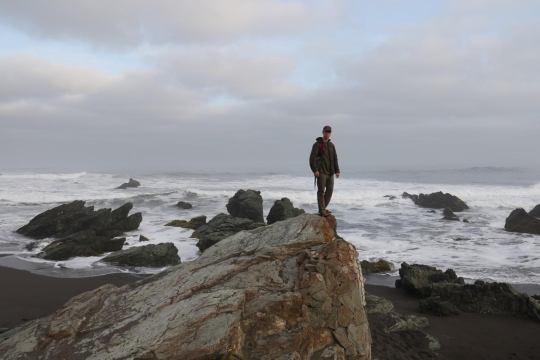
It was perfect until the unbearable pain began. Self diagnosing the fast onset of discomfort as a bad case of food poisoning, I’d hoped that imodium pills and water would get me through a few uncomfortable days in the Amazon. That night, the jungle guides brewed me a up a remedy of vines, plants, and tree bark they’d sourced from around the village. They instructed me to drink it before bed and promised it would make my pain go away.
As the third night went on, the sharp pains rapidly evolved. Hours of terrifyingly vivid hallucinations accompanied by chills and uncontrollable shaking took over my body. Dawn approached and I felt the urge to vomit or have diarrhea. I stumbled out of the screen door and slumped against the outside of the hut. I was seeing double, had no sense of direction and my balance was horrible. I needed to get to a toilet. The closest option was an outhouse, 100 feet away at the end of an elevated boardwalk which appeared to be no more than a few planks slapped together. I couldn’t risk the walk, how could I trust my balance if I couldn’t even see straight? I began to crawl, slow and weak, dripping in sweat, in nothing but my underwear.
The early morning came quickly. The jungle was alive, noises and commotion came from every direction, the chaotic buzzing of insects and birds began to overwhelm me, forcing me to collapse while trying to get ahold of my cerebrum. The sun just under the horizon was bringing a pale blue light to the sky, and dissolving the darkness. My mind and body slowed as I absorbed the surreal setting I was in. Immobilized and being devoured by mosquitos, I looked up into the eyes of an 8 foot caiman lurking in the water next to me, just waiting for a limb.
The next day, the guides took me down river to the nearest village with a doctor. Inside a small clinic I laid still as the doctor examined my abdomen. After numerous sharp jabs and pokes to my lower belly, he looked at me gravely and in hesitance mumbled in spanish,
“Your appendix has ruptured”.
The screeching sounds of alarm bells started going off in my head, this had to be a nightmare. Unable to comprehend the situation,
“Could I die?”, he hesitated after a beat and reluctantly said,
“Yes… I believe you have 8 to 12 hours of life left”.
It’s hard to describe the feeling… comprehending your own mortality. At that moment I thought of one thing, my family, my friends, how devastated they would all be. How I didn’t want this to be the end of living.
Frantically I began to yell, feeling scared, jumbled, confused.
“We need to get a rescue helicopter, now! Call the American Embassy, is there a military base we can contact?! Please, I’ll pay any amount of money, just get me out of here!”
They assured me they’d do what they could. I felt hot, sweaty, unsure of what would happen and thought about my life coming to an end. Nothing was happening, no one was rushing around, no phone calls being made. I soon realized where I was, rural Bolivia. Being the poorest country in South America, the options were scarce, barely existent. My life was not given the same value here as back home, they didn’t have the resources to have me rescued.
I was still, staring at the old, rotting ceiling, thinking about life. All of that life that I would be missing out on. That life that I had taken for granted, been bored with, felt smothered by... all of that seemed like a far off fantasy that I now desired so badly.
Minutes turned to an hour, an hour of hearing no word of what was to happen. An hour taken of the short amount of life I had left, an hour spent staring at a ceiling in tremendous pain, trying to focus on things that made me feel happy, safe, close to home.
Quickly a man entered the room frantically, yelling what seemed like gibberish,
“airplane! airplane!”
A small four seater Cessna pulled up in front of the building. The doctor stabbed me in the butt with a giant needle of morphine, and they loaded me into the plane. My new friend Lewis that I had set in to the jungle with, and a Portuguese girl named Ines, acting as a translator, accompanied me.
Men were running around, fuelling the plane by filling up two liter coke bottles and dumping them into the very small, rickety jet. The only reason these men even had an airplane, in the middle of the Amazon, was because of their business in the drug trafficking industry. They demanded nearly all of the money we had on us in order for them to fly us to a hospital. There were six people crammed into the four seats as we soared over the amazon in fear. Halfway through the flight, the back door of the plane flew open in aggression and we nearly lost everyones belongings.
We touched down on a dirt road in a town called Trinidad, which seemed to have outlived its reason to exist. The pilot refused to fly me to the Capital city of La Paz, so this was my only option. We entered the hospital in a hurry, though relieved to be in a hospital it came as a dissapointment. Inside, mold covered the walls and ceilings, blood and feces was sprayed over the courtyard from where they washed the mattresses, sick people scattered all around the halls, and stray dogs roamed about the entrance.
I was feeling anything but confident in the fact that I would survive. If the appendicitis didn't kill me, an infection from this place surely would. I had never seen a place like this, when I think hospital, I think clean, sanitary, smelling of alcohol and chemicals to keep everything sterile. The place smelled of mold, the air was heavy, weighing me down.
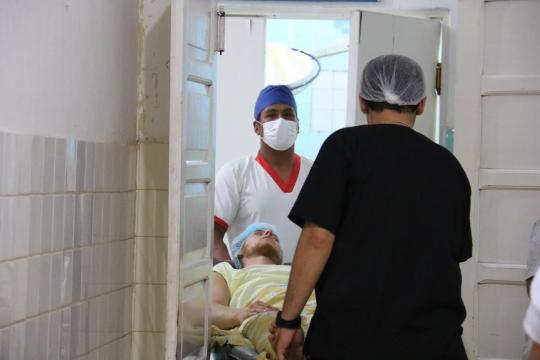
On the verge of sepsis, the doctors stuck and IV in my arm and told me that if they didn't operate now, my kidneys would fail, there was no time to think. They wheeled me in to a green room, stripped me naked, pumped the anesthesia into me and I was out.
I awoke, confused and hot. The room I was in, no longer green. Tubes were everywhere, in my nose, stomach, bladder, arm. I felt hazy, disoriented. I looked down to see a poorly stitched frankenstein like gash in my abdomen, swollen and red. My stomach was so bloated that it looked like I was pregnant.
The next seven days were the worst of my life. The first 24 hours without water, and the following five days without food. Unable to walk, I shit and puked on myself in bed, sometimes going a full night without it being cleaned up. Ants crawled all over the room, and the humidity kept me drenched in sweat, unbearably itchy. The part that bothered me the most though, was that I was getting the best treatment in the hospital.
The following is from a note I wrote on my phone while in the hospital:
I have help from friends and family overseas, I’m receiving special treatment, and can act however I want in the hospital because I am a rich white American. The man next to me has a broken and severely infected leg. I see exposed bone, blood, and dirty bandages. Although I cannot completely understand what is going on, his mother is here… she is crying. The family is arguing about an operation and something to do with eating and money. This man might die, he might lose his leg, he like most of the people in this country does not have the resources I have to get everything I possibly need to stay alive. It puts things in perspective. I’m so thankful for all I have. I can’t stop crying.
I returned home to the US after a week in that hospital. I spent six months in and out of the hospital there, dealing with infection and physical therapy to completely rebuild my abdominal wall. I started getting on my feet once I had enough strength again, and doctors cleared me.
I’ve never been more gracious to be able to go on another adventure, but more than that, I’ve never been more humbled and pleased by the perfectly normal, anticlimactic, everyday moments of my life. To simply be healthy, comfortable, and living in a family thats not struggling to survive is a luxury that we take for granted so often. In a world where so many people do not have these basics necessities, I believe all of us that can, should help spread the wealth. Everybody deserves to feel, for lack of better words, normal.
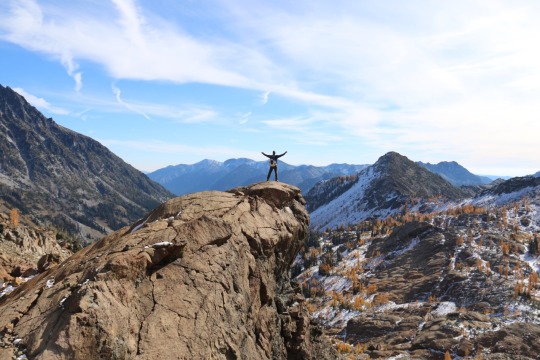
To Lewis, thanks for sticking with me.
0 notes








